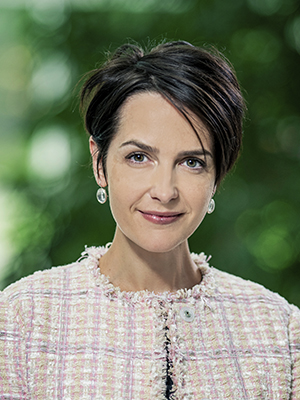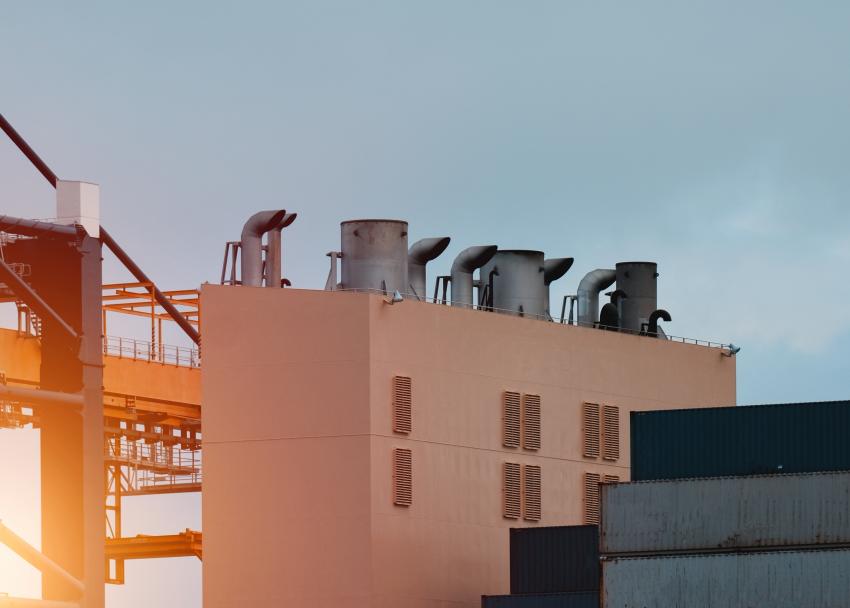Scientists from SIA“WTM Solutions” in cooperation with LVR Flote, a subsidiary of the Freeport of Riga Authority, are implementing a research project aimed at developing an innovative exhaust gas treatment technology and a prototype gas treatment plant for diesel engines, as well as testing it in a real operating environment on LVR Flote vessels. The project is implemented with the support of the EU Recovery Fund within the framework of the project “Mechanical Engineering Competence Centre”.
Latvian scientists aim to use their unique know-how to create a marine exhaust gas treatment plant that is more environmentally friendly, more efficient and more cost-efficient than those currently used by shipping companies.
Dmitrijs Uspenskis, Senior Researcher at WTM Solutions: “To meet the requirements for reducing sulphur emissions in exhaust gases, ships currently use scrubbers that separate sulphur from the rest of the fuel during combustion. As a result, the sulphur, together with soot and unburnt fuel residues, is transformed into hazardous waste in the scrubbers. Our technology allows us to remove nitrogen oxides, all aromatic and hydrocarbon particles (methane), extract the sulphur in its pure form and collect it for further use. We are currently working on a solution to neutralise the remaining CO2. We hope that during the next stage we will be able to implement this idea with the direct participation of Ivars Kalviņš, academician and President of the Latvian Academy of Sciences.”
Ultimately, the new technology will reduce harmful waste, contribute to the development of a circular economy and help the shipping industry to meet its targets for reducing not only sulphur but also CO2 emissions.
The project was launched on 1 September 2023. Initially, research work and gas emission measurements were carried out on board LVR Flote vessels. Based on the results and energy balance calculations, the technical design of a prototype gas treatment plant has been developed and production has started. According to the plan the prototype has to be built by the summer of this year and then its testing on board LVR Flote vessels has to be started.
“The components used in the development of our prototype are almost entirely manufactured locally in Latvia, with the exception of the electronics and ceramic components. The shipping industry is interested in our technology, and we have already started discussions with several large ship owners,” continued Dmitrijs Uspenskis.
The scientists' idea has been implemented in close cooperation and with the support from the Mechanical Engineering and Metalworking Industry Association (MASOC), which is implementing the “Mechanical Engineering Competence Centre” project, while LVR Flote, provided a real-life environment for measurements, research and tests. “It is a pleasure to cooperate with organisations that not only in words but also in deeds stand up for technological development, actively support innovation, science and education,” said Dmitrijs Uspenskis.
LVR Flote Board member Kaspars Ozoliņš: “In line with our strategy, LVR Flote supports research and innovation projects that contribute to both the quality of our services and the development of the industry in general. As a technical services company, we are interested in practical solutions and WTM Solutions' idea will help us to achieve the objectives of the Green Deal in a practical and efficient way. The introduction of such technology, from a sustainability perspective, extends both the life of ships currently operating on conventional fuels, and the efficient operation of vessels for which no environmentally friendly alternative is currently available, such as ice-class ships. We are glad that such an innovation is being created in Latvia, thus promoting the country's excellence, and we are proud that the ships and crew of the LVR Flote participate in the promotion of technology development.”
The research project “Development and testing of a reactor prototype for marine engine exhaust gases treatment in a real operating environment” is to be implemented by August 31, 2024. The total cost of the planned project is 278.48 thousand euros, including 157.53 thousand euros of funding from the EU Recovery Fund.
Information for media

- [email protected], +371 670 308 53
- Freeport of Riga Authority
- 12 Kalpaka blvd, Riga, Latvia, LV-1010
 English
English























